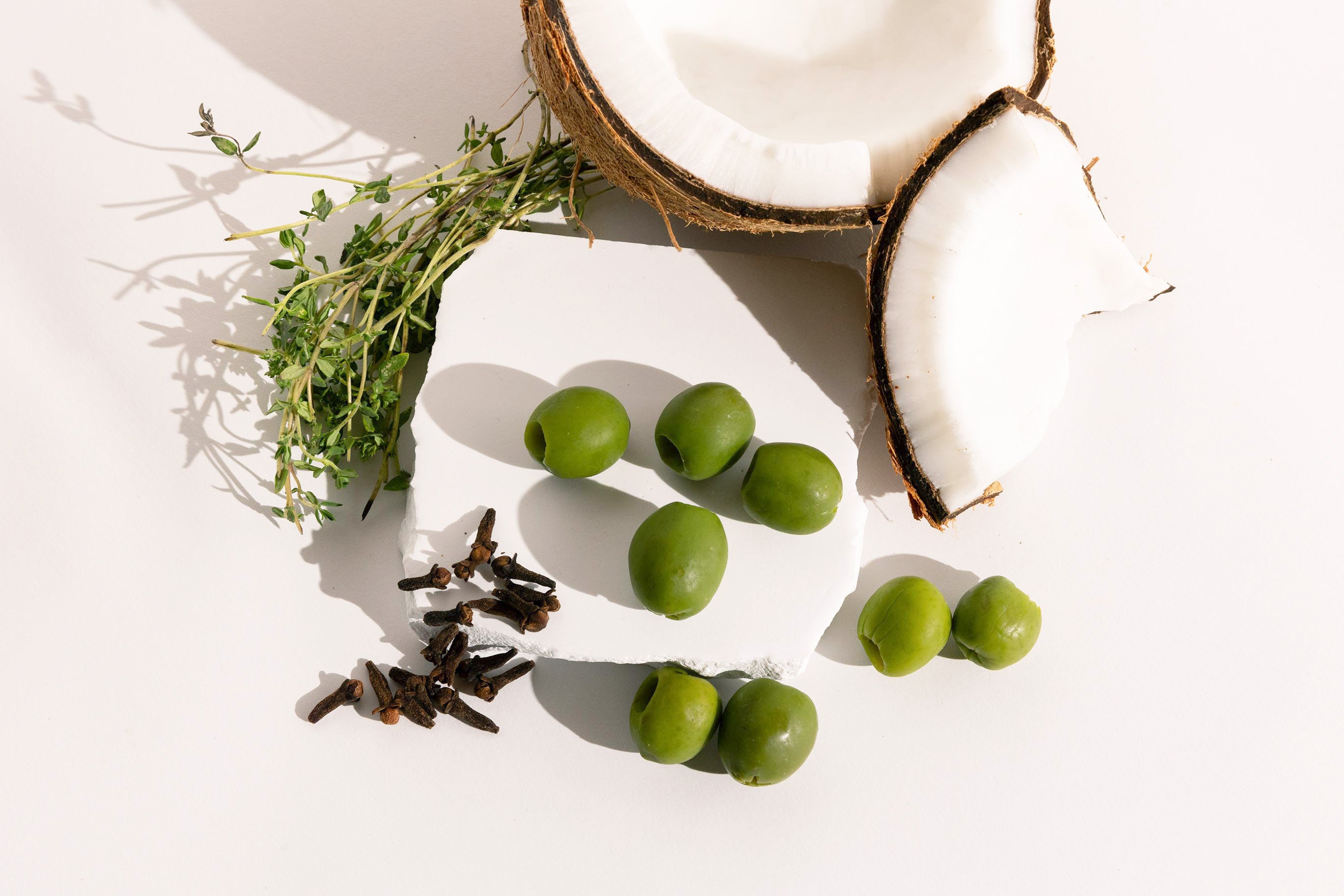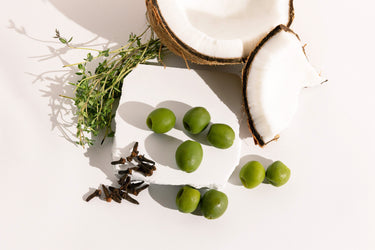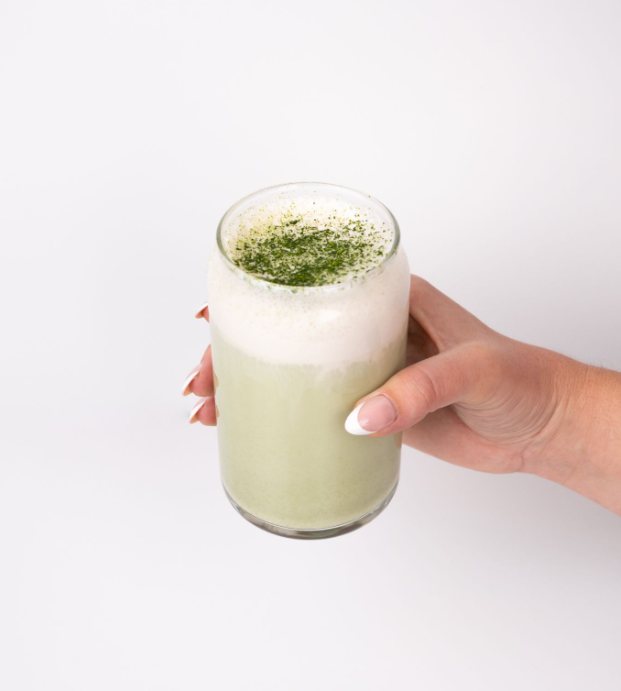
Are you in search of a supplement that can improve your athletic performance and brain function?
A creatine supplement may be your answer. This substance is naturally found in your muscles, and it can give your body the energy it needs to lift heavy weights or perform a high-intensity workout. Plus, it may play a role in combating certain diseases and supporting healthy moods, behavior, and memory.
In this guide, we’re discussing the potential benefits of creatine supplements and how you can add them to your diet.
Creatine 101
Are creatine myths true? To understand creatine and its role in the human body, it helps to brush up on our basic anatomy.
Creatine is an amino acid, meaning it’s a building block of essential proteins that your body needs to function optimally. Think of amino acids as legos—each individual lego can be built upon to create different structures—in this case, protein.1 Your body can pair various amino acids together to create different proteins.
Specifically, creatine supports your brain and muscle function.2
Approximately half of your body’s creatine comes from dietary sources, while the other half comes from your liver and kidneys. If you don’t get enough creatine monohydrates in your diet, oral creatine supplementation can be helpful.
Even those who do receive enough creatine, such as athletes, might still take oral creatine supplements to support their health and athletic performance.3
This amino acid provides the energy your muscles need to contract. 3Muscle contraction is crucial for your body to function every day, regardless of whether or not you’re exercising. When your muscles contract, they are either:4
- Lengthening
- Shortening
- Tightening
In daily life, muscle contractions help stabilize your joints and keep a good posture. They can even help preserve your body temperature by inducing shivers if you become too cold. In both low and high-intensity exercises, these muscle contractions allow you to complete a wide variety of movements, including stretching, squatting, and planking.4
Now that we’ve established how creatine functions in the human body, let’s discuss five of the possible benefits of adding creatine supplements to your health and wellness routine, including:
- Increasing muscle mass
- Improving athletic performance
- Boosting brain function
- Combating disease
- Safety and availability
Benefit #1: It Can Increase Muscle Mass
With its essential role in helping your muscles contract, it’s no surprise that many of creatine’s benefits relate to your muscles. Different studies have identified multiple mechanisms by which creatine increases multiple mass, including:5
- Decreasing levels of myostatin – Some studies suggest that one of the ways creatine increases muscle lean mass is by reducing the molecule myostatin. This molecule inhibits muscle growth, so decreasing it can cause muscles to grow more quickly.
- Increasing insulin-like growth factor 1 (IGF-1) – The hormone IGF-1 can increase muscle mass, and creatine increases IGF-1.
- Increasing muscle water content – It can increase the water volume in your muscles. As a result, creatine increases muscle size. This is the initial boost in muscle mass you’ll see if you start taking creatine.
- Modifying cellular pathways – Creatine changes multiple different cellular pathways connected to muscle growth. It’s able to increase new muscle fibers by increasing the proteins responsible for this growth.
Creatine isn’t just popular for increasing muscle mass but also for the speed at which it achieves these increases. There is a wealth of studies and reviews demonstrating its capacity for muscle growth. It can increase both lean body weight and muscle mass in just five to seven days.
Additionally, in one six-week study, subjects taking creatine gained 4.4 more pounds of muscle mass than the control group.5
Benefit #2: It Can Improve Athletic Performance
For exercise aficionados, the abbreviation ATP is no stranger. It’s the molecule your muscles break down during exercise to create more energy. As a result, the amount of ATP your body has affects how long you can exercise at maximum intensity.5
Imagine you’re running: the amount of ATP your body creates is the deciding factor in how long you can maintain a sprint. That’s where creatine supplements come in. They help your body produce more energy so that your threshold for maximum intensity can increase too.5
According to one study, creatine monohydrate can improve athletic performance by up to 15%. These improvements occur across multiple dimensions, including:5
- Ballistic power
- Muscle strength
- Muscle endurance
- Muscle recovery
- Sprint ability
While some supplements only improve performance in trained athletes, creatine benefits everyone’s athletic performance, regardless of their ability or experience.5 Creatine may also decrease your likelihood of experiencing an injury.2<
With all these advantages, it’s understandable why creatine and vanilla pea protein powder are so beloved by both advanced athletes and casual gym-goers.
Benefit #3: It May Boost Brain Function
Creatine’s athletic benefits are generally well known. What’s not mentioned as frequently is its ability to help your brain.
You’ll recall that creatine exists in both your brain and your muscles. As a result, creatine can support brain health and function, too.
To understand why, we have to return to our old friend ATP.
Like your muscles, your brain uses ATP for energy, especially for more difficult tasks. This energy is used to repair cells. In effect, creatine can:6
- Regulate your mood and behavior
- Improve cognitive function
- Support brain injuries and neurological disorders
The connection between creatine and brain function is an important area for research, especially in individuals who are healthy and young. Two populations that may benefit from creatine supplements are:5
- Older people – One study found that older people who took creatine supplements for two weeks had better memory and recall abilities.
- Vegetarians – Another study found that vegetarians who took creatine supplements had a 20-50% increase in certain memory and intelligence metrics.
Benefit #4: It May Benefit Full-Body Health
Creatine has a wide range of potential benefits. More generally, creatine may decrease fatigue and increase energy, both in exercise and daily life. 5It can also support bone health and improve skin appearance. 2
That said, creatine may also play a role in combating diabetes and neurological diseases.5
Diabetes
Early research has found that creatine can lower blood sugar, which can lower the risk of heart disease, stroke, and diabetes—scientists are exploring how creatine could potentially help diabetics and those at risk for developing diabetes.5
In one study, participants showed an improved blood sugar response after a high-carb meal when they incorporated both creatine supplements and exercise.5
Neurological Diseases
Scientists are also interested in how creatine might combat different neurological diseases. For many of these conditions, creatine could diminish or slow the progression of multiple neurological diseases, such as:5
- Alzheimer’s disease
- Amyotrophic lateral sclerosis (ALS)
- Brain injuries
- Epilepsy
- Ischemic stroke
- Parkinson’s disease
- Spinal cord injuries
Much of this research comes in the form of animal studies, so in many cases, creatine’s effect on humans with neurological conditions has not been established.
Still, the results from these animal studies are promising. In the case of Parkinson’s disease, mice studies found creatine significantly limited the decrease in dopamine levels associated with the disease’s progression. There are conflicting human studies on whether or not creatine supplements improve individuals' ability to complete their daily activities.5
A mice study on ALS found that creatine could decrease the disease progression by increasing motor function and decreasing muscle loss. This led to a 17% increase in survival. Similarly, a study on mice with Huntington’s disease suggested that creatine has neuroprotective abilities.5
There is also evidence creatine can support those who suffer from a traumatic brain injury. In a 6-month study, participants who took creatine supplements saw significant reductions in both dizziness and fatigue compared to the control group.5
Future research into creatine supplements will likely involve more human studies that investigate creatine’s role in preventing different diseases.
Benefit #5: Safety and Availability
Creatine is largely researched, and studies have determined that creatine supplementation is both safe and effective in healthy people.5
As such, creatine supplements are widely available and affordable across the market.5 They come in many forms, including:
- Powders
- Pills
- Gummies
That said, when taken at a high dosage, there is potential for several side effects, including kidney damage. Taking too many creatine supplements may also cause your body to stop producing creatine naturally.7
Generally, it’s recommended that you consult with your healthcare provider before incorporating any type of supplement into your diet.
Creatine Supplements You Can Trust at Cymbiotika
So, what are the benefits of taking creatine? Creatine supplementation can support muscular growth, athletic performance, brain function, and long-term health. Essentially, this amino acid has your back, whether you’re an experienced athlete or a vegan looking to support a healthy lifestyle.
To supplement your day-to-day, we’ve created Creatine+ to enhance energy production, stamina, and overall wellness. And it’s free from fillers, toxins, and synthetic ingredients, ensuring you’re putting only the best ingredients in your body.
Reach your wellness goals with Cymbiotika.
Sources:
- Cleveland Clinic. Amino Acids.https://my.clevelandclinic.org/health/articles/22243-amino-acids
- Mayo Clinic. Creatine. https://www.mayoclinic.org/drugs-supplements-creatine/art-20347591
- Cleveland Clinic. Creatine and Creatine Supplements.https://my.clevelandclinic.org/health/articles/17674-creatine-and-creatine-supplements
- WebMD. Types of Muscle Contractions. https://www.webmd.com/fitness-exercise/types-of-muscle-contractions
- Healthline. 10 Health and Performance Benefits of Creatine.https://www.healthline.com/nutrition/10-benefits-of-creatine
- Nutrients. Creatine Supplementation and Brain Health.https://www.ncbi.nlm.nih.gov/pmc/articles/PMC7916590/
- Mount Sinai. Creatine.https://www.mountsinai.org/health-library/supplement/creatine







